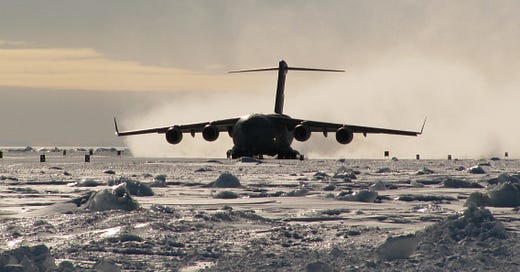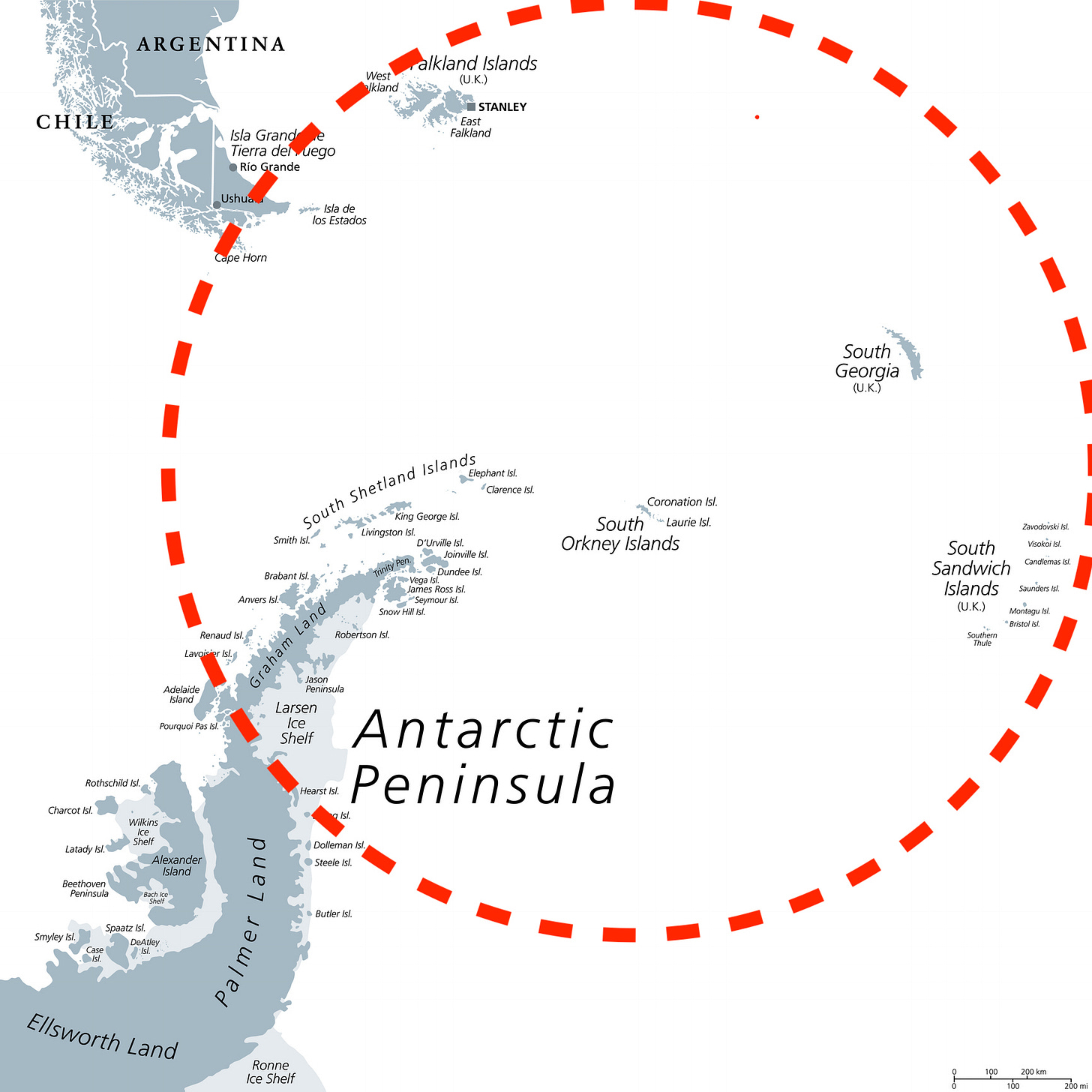(Continued from Part One….)
The Arctic is important for another reason - the return of nuclear threats has also focused superpower attention there. The Arctic has become the front line for the modern Cuban Missile Crisis. In February 2023, Norway’s normally silent and invisible intelligence service publicly warned the world that they were concerned that nuclear weapons might be present on Russian submarines and ships in the High North. Murmansk is the headquarters of Russia’s Northern Fleet. Sweden and Finland’s accession to NATO also brings the possibility that Western nuclear weapons may be deployed in these locations as well. Russia’s threat to deploy nuclear weapons and lowering the threshold for doing so has all the Arctic and high North nations on high alert. So, tracking the movement of nuclear capability in the Arctic has emerged as a very high priority for Russia and NATO alike.
The British military leadership, for example, is loudly complaining that the draconian budget cuts leave Britain less capable, which is precisely what emboldens China and Russia to challenge British interests at the poles. China and Russia may see not only vast riches in those faraway polar seas but also a way to provoke a confrontation that Britain, AUKUS (the new Australia, UK, US defense pact), and NATO might find extremely hard to manage. While all eyes focus on Russian subs and ships snaking down from Murmansk to threaten NATO along the Baltic, Scandinavia, and even Irish shores, perhaps the next important flash point will be further away in places like Svalbard and South of the Falklands. Under the new Government, Britain’s position is to withdraw from remote locations. The British just struck a deal on the Chagos Islands and Diego Garcia, which the US considers a critically important military base, especially for managing conflicts in the Middle East. Argentina’s Foreign Minister has already vowed to “recover full sovereignty” over the islands, and Britain insists its position is “unwavering.” It seems unlikely and unwise for Britain and its rivals to step away from the Falklands or Antarctic assets when huge cash flows in these places become tangible. So, a fight is brewing. Add that to the ever-growing list of geopolitical hotspots.
It is not just national pride that is at stake. It’s the precarious state of finances amongst all the interested parties. For example, given the appalling state of Britain’s finances, could Britain harvest cash flows from the poles instead of harsh tax hikes and stiff budget cuts? Could Australia? Could others? Is the black gold of Antarctica and the digital gold of the Arctic now central to sovereign finances as well as to its national security interests? It seems odd that the British sink into despair about the economy, yet they don’t even consider that Britain is sitting on a pile of cash just because it’s in places that are out of sight and out of mind. While the British may not recognize the gold in their territory, others do. So, the question may not be “How should we develop this?” but “Can we keep it?”. The question may even be, “how would Britain (or Australia or New Zealand, etc) defend and protect these assets, or those of defense allies, if they are encroached upon by another nation? Given the precarious state of geopolitics, a territorial conflict between Russia, China and Britain, or others, especially in the faraway Arctic or Antarctica, might be a very tricky situation to manage.
Strangely, in spite of all these nations jockeying around Antarctica for access to resources and claims, The Antarctic Treaty is always cited as the best foundation for a possible Space Treaty that would similarly govern access to space. But if the arrangement is not working on Earth, why would it work better in space? Also, in theory, Antarctica cannot be militarized. But the Continent is shrouded in more secrecy than ice, as are certain facilities in the North. Why?
Both poles have high-frequency active Auroral Research Programs (HAARPs) and ionospheric research facilities. These highly classified, heavily guarded






